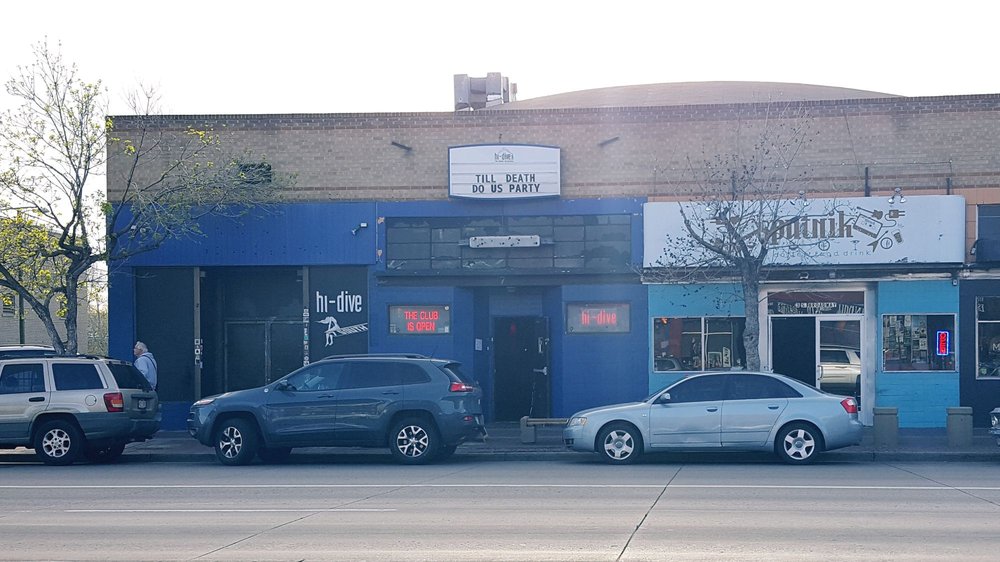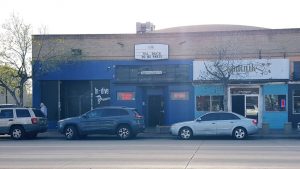Small music venues in the US are looking for a lifeline — and a new bill in Congress called The Restart Act might be it. Advocates say the future of independent venues relies on government relief. [Michael St. James adds: One of your senators in Colorado is the co-sponsor: Michael Bennet (D-Colo.) Call your Senator and demand they pass the Restart Act. U.S. Capitol Switchboard at (202) 224-3121 ask for your state and both senators.]
Transcript of NPR Podcast:
Scott Simon, Host: Packing into a small, crowded, dimly lit room, dancing along with a few hundred strangers while a band plays – a small joy many folks have been missing. While restaurants and bars can offer outdoor seating, small music venues usually can’t. They’re among the businesses hardest hit by the pandemic. But NPR’s Andrew Limbong reports a new bill making its way through Congress could be just the lifeline these places need.
Andrew Limgong: When Tobi Parks describes xBk – her performance space in Des Moines, Iowa – she paints an intimate picture.
Tobi Parks: It’s in an old horse barn that is next to an old firehouse.
Limbong: She renovated it completely with a focus on the acoustics, and it fits 250 people max. When the pandemic hit, she was forced to shut down.
Parks: You can’t serve live-music takeout, so we’ve had zero revenue since March 11.
Limbong: She got some money from the Paycheck Protection Program, but because most of that had to be spent on payroll, as opposed to overhead, it didn’t help much. Under Iowa’s reopening plans, she could put on a show but…
Parks: Once we put the 6-foot distance in place, our cap went from 250 to 54.
Limbong: And remember, the draw for a place like hers is intimacy, not just with the artist on stage but with the audience around you.
Parks: To say the word being in an intimate, indoor space to anybody these days, that’s terrifying.
Limbong: Parks says without government help she’ll have to file for bankruptcy.
Parks: I put all of my savings into this business. I embedded myself to do the renovations on our venue. And if we don’t get help, that’s what’s going to happen. So it’s a pretty bleak outlook.
Limbong: Parks is in the same position as some 2,000 other independent music venues across the country, according to Audrey Fix Schaefer. She’s the spokesperson for a group those clubs formed called the National Independent Venue Association, or NIVA.
Audrey Fix Schaefer: We did a survey of NIVA members a couple of months ago and found out 90% of them – 90 – said that if the shutdowns lasted six months or more and there was no federal help, they would never open again.
Limbong: Schafer says the only way to save these spaces is a bill called the RESTART Act. It’s a bipartisan piece of legislation that’ll loan small businesses money, which can be spent more flexibly for rent payments, utilities, employee benefits, et cetera. It’s also got broad and generous options for loan forgiveness based on declining revenues, and it has a lot of support. Huge companies – including Amazon, Spotify and YouTube – sent a letter to Congress Tuesday backing the bill. But timing is crucial. Schaefer – who works for a number of independent music venues in Washington, D.C. – says Congress needs to pass the bill before it goes on recess in August. Senator Todd Young, a Republican from Indiana who co-sponsored the bill, says that timeline is possible.
Todd Young: I actually think that we do have an opportunity and a very high probability of passing our RESTART Act or something like it before August and then, in the following days, implementing it.
> > > > > > > > >
Read the rest of the interview here – then call your senators!
https://www.npr.org/2020/07/18/892582957/new-bill-aims-to-help-music-venues-suffering-amid-covid-19-pandemic?
Copyright © 2020 NPR. All rights reserved. Visit our website terms of use and permissions pages at www.npr.org for further information.
NPR transcripts are created on a rush deadline by Verb8tm, Inc., an NPR contractor, and produced using a proprietary transcription process developed with NPR. This text may not be in its final form and may be updated or revised in the future. Accuracy and availability may vary. The authoritative record of NPR’s programming is the audio record.


